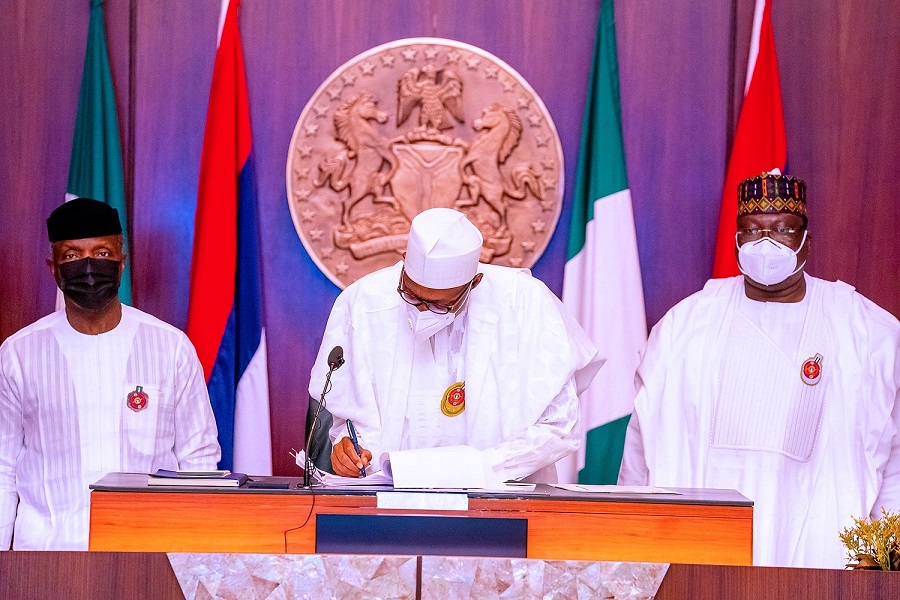Recently, President Muhammadu Buhari signed the 2021 appropriation bill of N13.59tn into law alongside the Finance Bill 2020 to run concurrently. According to the Budget Office of the Federation, the annual budget tagged “Budget of Economic Recovery and Resilience” is expected to reposition the Nigerian economy on the path of recovery, growth and resilience.
READ: Bitcoin miners are super-rich, earn $1,000,000 per hour
The appropriation bill shows an expected revenue of N7.99tn and aggregate estimated expenditure of N13.59tn. This implies a budget deficit of N5.60tn which would be financed mainly by borrowings of N4.69tn, privatization proceeds of N205.15bn and finally project linked bilateral & multilateral loans of N709.69bn. Further analysis of the 2021 appropriation bill shows that c.24% of the total expenditure is designated for debt servicing.
READ: Growing concern for Nigeria’s ballooning debt profile
Over the years, the Federal Government has struggled to finance its budget mainly due to low revenue, which is susceptible to oil price volatilities. The Federal Government only generated 68% of its prorated budgeted revenue of N4.75tn as at July 2020 despite adjusting the official exchange rate for revenue conversion to N360/US$1 from N306/US$1 previously.
READ: U.S. budget suffers a deficit of $3.1 trillion in 2020, as pandemic slams the economy
This has resulted in an increasing budget deficit for the country and increased borrowing by the government from both domestic and international bodies. As at the end of September 2020, the nation’s public debt stood at a total of N32.2tn and with the planned borrowing of N4.69tn to finance the budget deficit, total public debt is expected to rise to c.N36.89tn by December 31, 2021.
READ: Nigeria needs $3trillion in 30 years to reduce infrastructure deficit – Osinbajo
Whilst debt to GDP ratio remains within the acceptable threshold, we are increasingly concerned about the nation’s debt service to revenue ratio which shows the country may be heading towards a debt crisis should the borrowings continue in face of limited finances to support existing debt obligations. We note that the Federal Government typically exceeds its budgeted deficit for a budget year.
READ: The opportunities in Africa’s $100 billion infrastructure deficit
This is amidst our pessimism on the Federal government’s ability to achieve its Revenue target of N7.99tn in 2021 (the highest in the history of Nigeria). In our opinion, the government needs to focus its expenditure on capital projects expected to generate cashflows for the economy. Also, there is the need for more collaboration between private enterprises and the government to ease the burden of increasing costs borne by the government. In addition, attention must be paid to the efficiency and effectiveness of government spending.
READ: Unemployment rate: Worse days ahead if economic policies don’t improve – TUC
CSL Stockbrokers Limited, Lagos (CSLS) is a wholly owned subsidiary of FCMB Group Plc and is regulated by the Securities and Exchange Commission, Nigeria. CSLS is a member of the Nigerian Stock Exchange.
